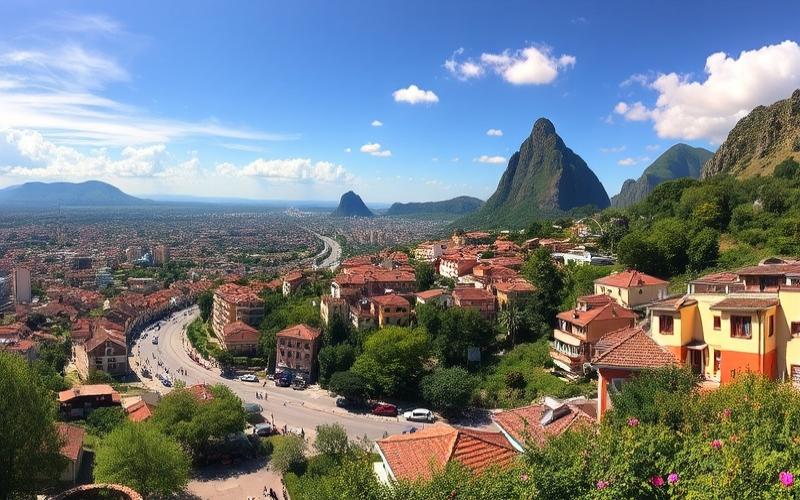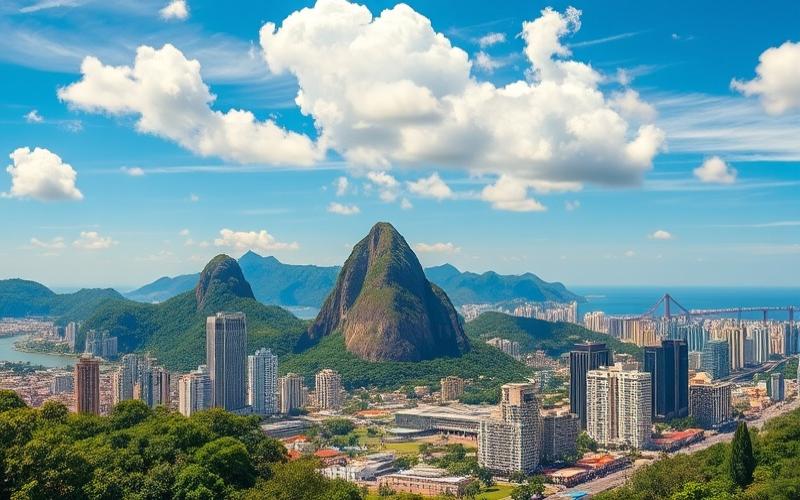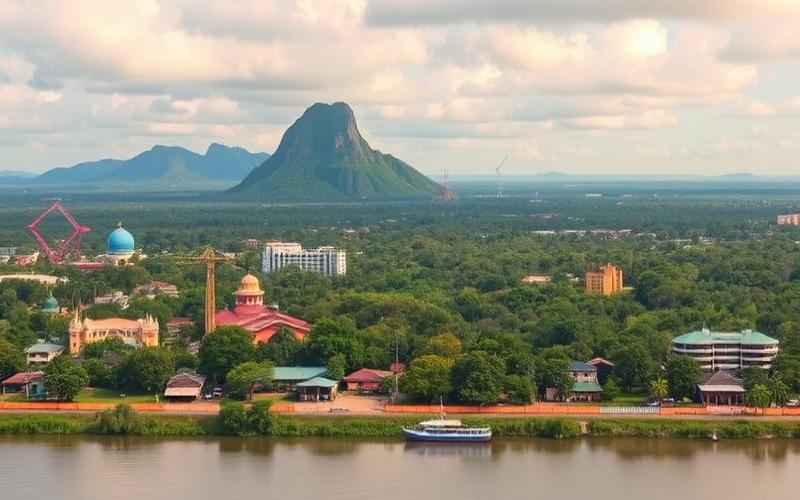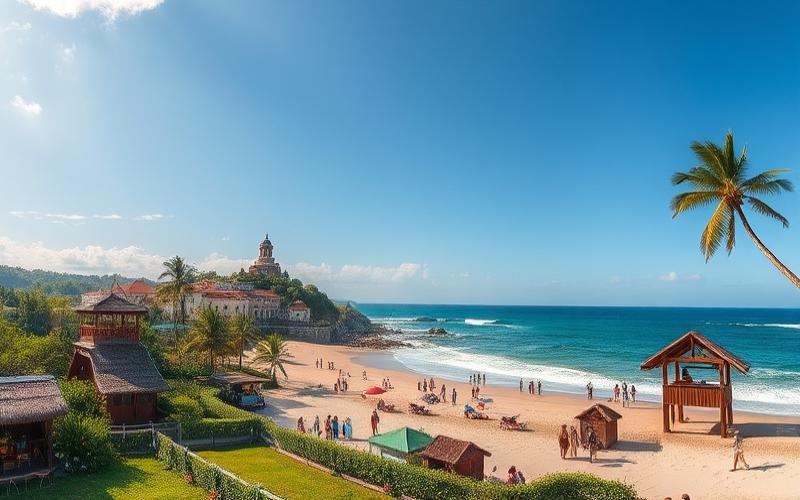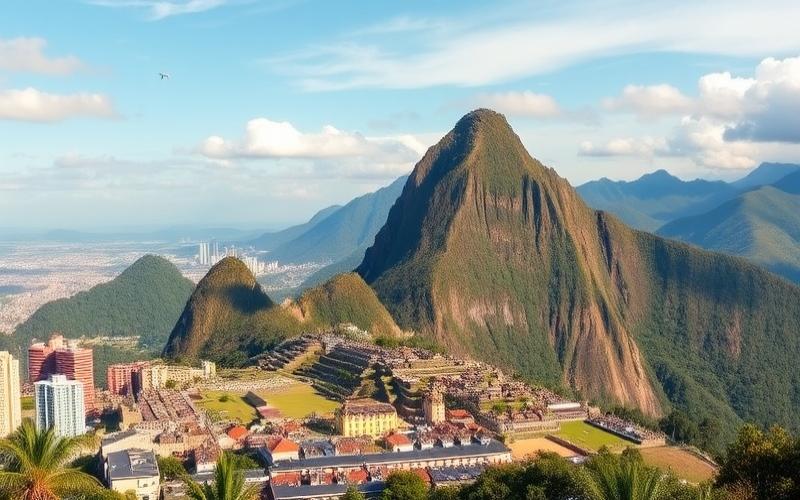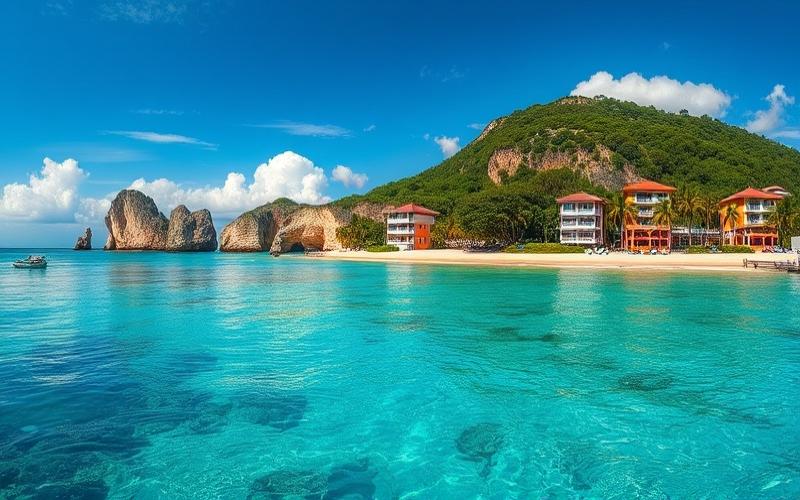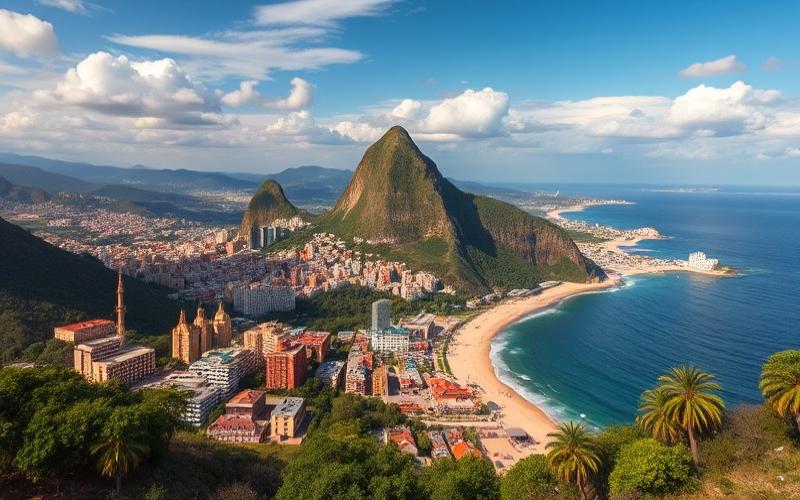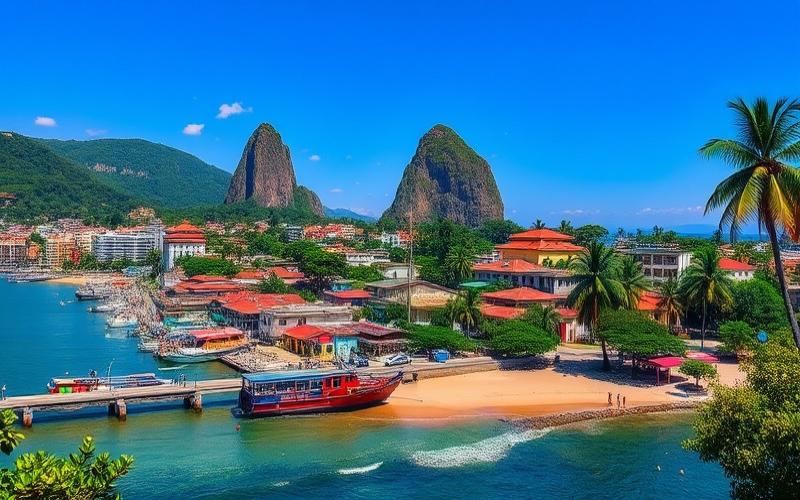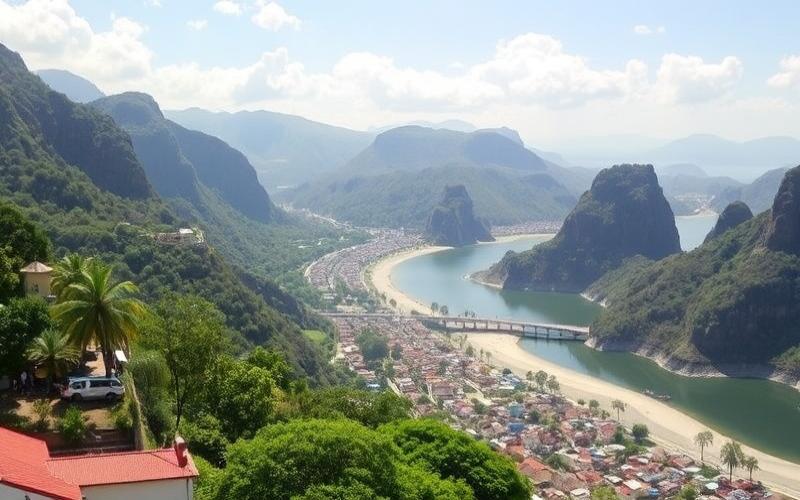
 Published on and written by Cyril Jarnias
Published on and written by Cyril Jarnias
Brazil, with its dream beaches, vibrant culture, and dynamic economy, is attracting more and more foreign investors to the real estate sector. Whether you’re looking to acquire a vacation home on the coast or invest in a rental property in São Paulo, it’s crucial to understand the specifics of the Brazilian market. This article will guide you through the key steps of the real estate purchasing process in Brazil for foreigners.
The Legal Framework: What You Need to Know Before Investing
Contrary to some misconceptions, Brazil is a country relatively open to foreign investors in the real estate sector. Non-residents can acquire real estate in most regions of the country, with a few exceptions.
- Foreigners cannot purchase agricultural land larger than 50 fiscal modules (a measurement unit that varies by region) without special government authorization.
- Acquiring properties in border areas (within 150 km of the border) requires approval from the National Defense Council.
- Certain restrictions also apply to properties located on the coastline.
Outside of these specific cases, foreigners enjoy the same rights as Brazilians regarding real estate purchases. However, it is recommended to hire a specialized lawyer to ensure your project complies with current legislation.
Real Estate Taxation: A Major Consideration for Foreign Investors
Taxation is a crucial aspect to consider when purchasing real estate in Brazil. Foreign investors are subject to several taxes and duties:
Real Estate Transfer Tax (ITBI): This tax is due upon purchasing the property. Its rate varies by municipality but is generally between 2% and 4% of the property’s value.
Urban Property Tax (IPTU): This is an annual tax whose amount depends on the property’s value and location. Rates vary considerably from city to city.
Income Tax: If you rent out your property, the rental income will be subject to income tax in Brazil. The tax rate for non-residents is typically 15% to 25%.
Capital Gains Tax: If you sell the property, you will be subject to a capital gains tax. The rate is 15% for non-residents.
It’s important to note that Brazil has signed tax treaties with many countries to avoid double taxation. Consult a tax expert to optimize your situation.
Good to Know:
Brazil offers tax incentives for certain types of real estate investments, particularly within social housing programs or urban renewal initiatives. Look into these opportunities as they can reduce your tax burden.
Essential Documents: Prepare in Advance
To successfully complete your real estate purchase project in Brazil, you will need to gather several essential documents:
- Valid passport
- Brazilian tax identification number (CPF) – mandatory for any real estate transaction
- Proof of income (bank statements, tax returns)
- Purchase and Sale Agreement (Escritura de Compra e Venda)
- Property ownership certificate (Matrícula do Imóvel)
- Certificates confirming the absence of tax debts and liens on the property
Obtaining the CPF: Getting a CPF is a crucial step for any foreign buyer. You can obtain it from the Brazilian embassy or consulate in your country, or directly in Brazil if you are already there.
The Step-by-Step Purchase Process: From Search to Signing
1. Property Search: Hire a local real estate agent to assist with your search. Ensure they are licensed by the CRECI (Regional Council of Real Estate Agents).
2. Due Diligence: Once a property is found, conduct a thorough check of its legal and tax status. Your lawyer will play a crucial role at this stage.
3. Negotiation and Sales Promise: Negotiate the price and sale conditions. Signing a preliminary sales agreement (Compromisso de Compra e Venda) is common in Brazil.
4. Financing: If necessary, arrange your financing. Brazilian banks may be reluctant to lend to non-residents, so consider alternative solutions.
5. Signing the Deed of Sale: The sale is formalized before a notary public (Tabelião) by signing the Escritura de Compra e Venda.
6. Registration: The deed of sale must be registered with the local real estate registry office (Cartório de Registro de Imóveis).
Good to Know:
The purchase process can take several months in Brazil. Plan for sufficient time and be patient.
Tips to Secure Your Investment
– Hire recognized professionals: real estate agent, lawyer, accountant. – Meticulously verify all documents related to the property. – Be vigilant about land use restrictions, especially in coastal or protected areas. – Consider creating a Brazilian legal structure to hold the property, as this can offer tax and inheritance benefits. – Familiarize yourself with the specifics of the local market and long-term trends.
Outlook and Opportunities in the Brazilian Real Estate Market
The Brazilian real estate market offers great opportunities for foreign investors, despite the economic and political challenges the country may face. Major metropolitan areas like São Paulo and Rio de Janeiro remain safe bets, while coastal cities like Florianópolis or Fortaleza are attracting more and more international buyers.
The luxury segment, in particular, is experiencing significant development, driven by growing demand for high-end properties. Furthermore, the country’s housing deficit creates interesting opportunities in the affordable residential sector.
Trends to Watch: – Development of sustainable and eco-friendly real estate projects – Growth of serviced senior residences – Expansion of the flexible office market in major cities
Good to Know:
Brazil has launched several programs to stimulate real estate investment, such as the “Casa Verde e Amarela” program, which aims to facilitate housing access for low-income households. These initiatives can create interesting opportunities for investors.
Investing in Brazilian real estate can be a rewarding and potentially lucrative experience for foreign investors. However, it is crucial to prepare well and surround yourself with competent professionals to navigate the complexities of the local market. With a cautious and well-informed approach, you can make the most of the opportunities offered by this dynamic and promising market.
Disclaimer: The information provided on this website is for informational purposes only and does not constitute financial, legal, or professional advice. We encourage you to consult qualified experts before making any investment, real estate, or expatriation decisions. Although we strive to maintain up-to-date and accurate information, we do not guarantee the completeness, accuracy, or timeliness of the proposed content. As investment and expatriation involve risks, we disclaim any liability for potential losses or damages arising from the use of this site. Your use of this site confirms your acceptance of these terms and your understanding of the associated risks.


